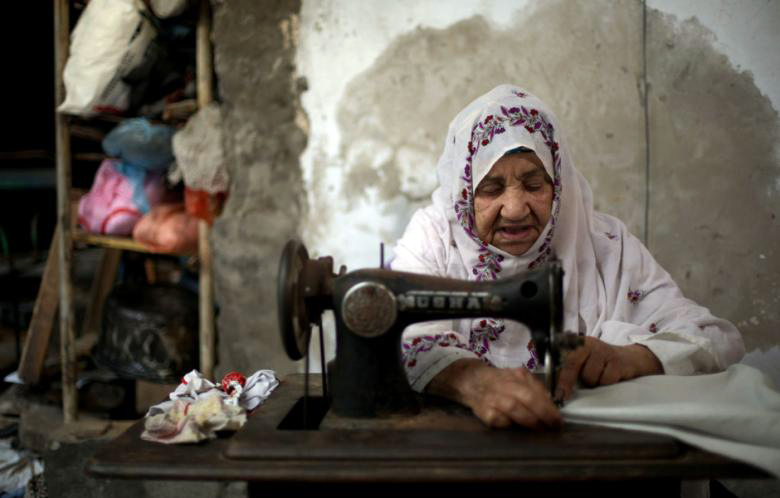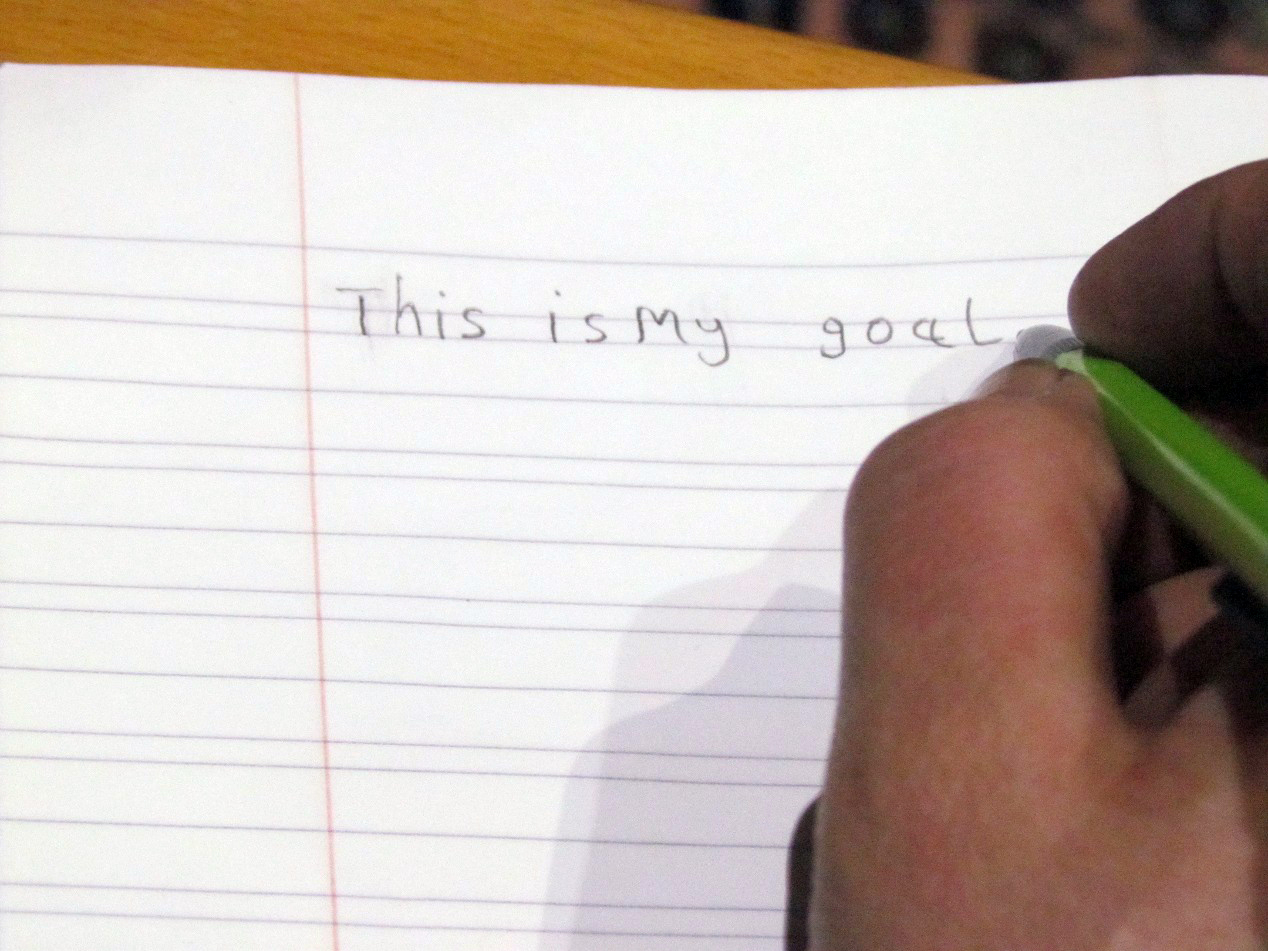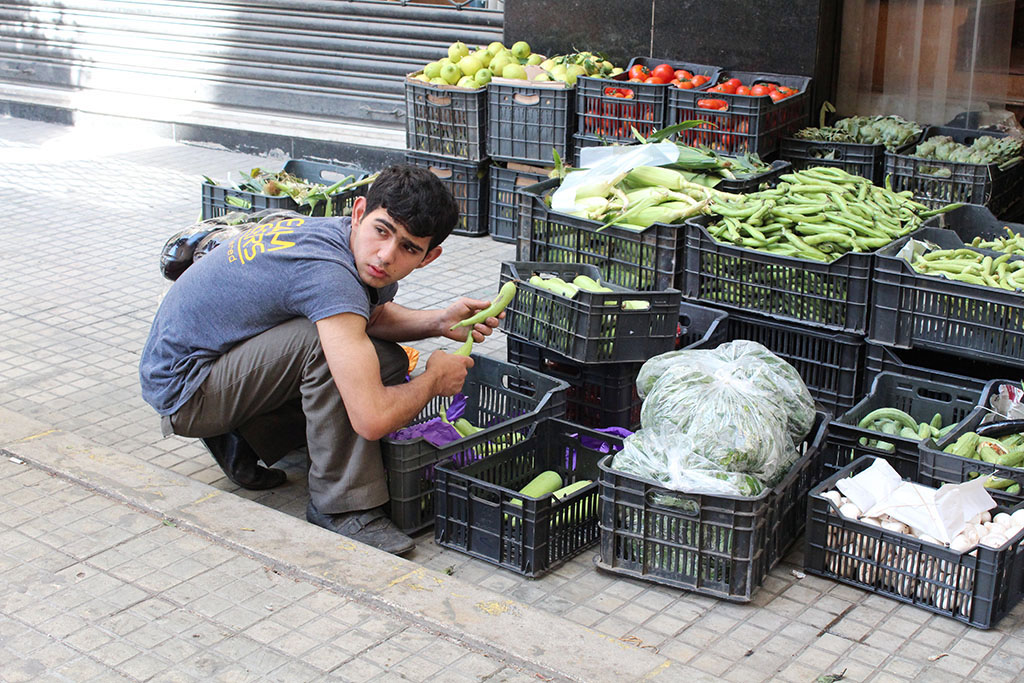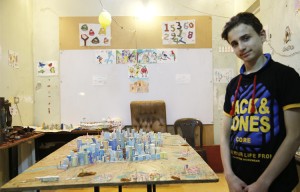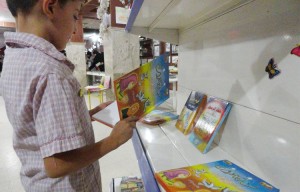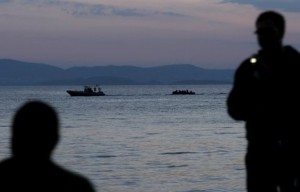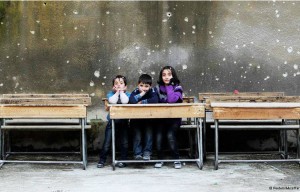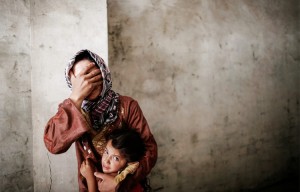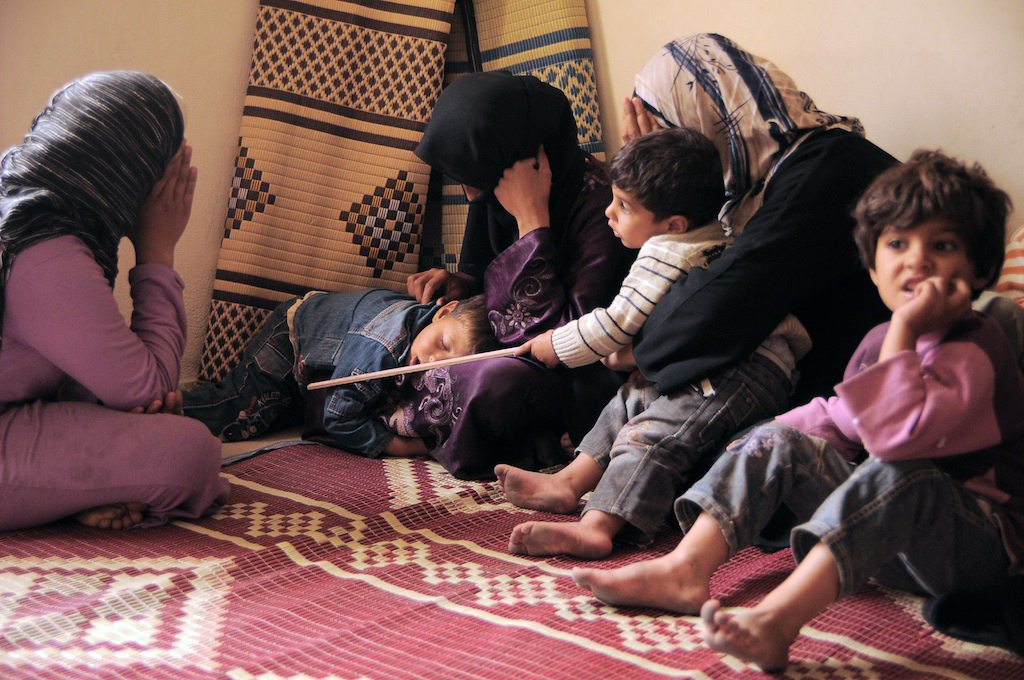
Syrian Elderly Suffering during Displacement

Enab Baladi Issue # 86 – Sun, Oct. 13, 2013
Om Muhammad, an old woman from Daraya, had to flee her large comfortable house and to share a two-room one with her sons and their wives and kids. Not all old people could do what Om Muhammad did; some refused to leave their houses despite being in conflict zones in fear of undignified alternatives, and due to growing sense of frailty and mortality.
The almost three-year-old Syrian crisis has deprived Om Muhammad and many other elderly people from their homes as well as from their social status as heads of the household. They had to displace their houses and to live along with their relatives in harsh conditions that they were not used to, or ever imagined to experience, especially in their “last days”.
Om Muhammad spent almost the last twenty years of her life in a comfortable “clean” house alone. She found it difficult to accommodate to living with her married sons and their families; she complains about the constant noise of the children which never stops prevents her from having her usual half-an-hour nap. She also criticizes her daughters-in-law for being negligent and irresponsible towards raising their children and for being careless about the house work.
Sahar, one of her daughters-in-law, says that recently Om Muhammad has been bad-tempered, pushy and interfering.
Rima, another daughter-in-law, had a fight with her husband Essam about his mother. Rima –the wife- warned Essam of leaving him if he doesn’t get them their own place. The financially broken son, Essam, has been in a double bind: his unbearable mother –as he says-, and his demanding wife.
Om Muhammad’s family is not the only suffering family; these stories are heard every day among displaced people. Thirty-year-old Samar has been living with her in laws since she got married. She used to take shifts with other relatives to serve her bedridden mother-in-law. Now, the burden of taking care of the old lady has fallen onto Samar alone as her mother-in-law refused to leave the country with any of her other children.
Samar wishes it was common for older people to be sent to nursing homes; but it is not acceptable in eastern society. She says that due to the poor conditions of displacement it would be easier for both of them, her mother-in-law and her, if it was so.
Om Shaher, another old woman, had to leave with her sons who took refuge in Lebanon; she moves from one son’s house to another. She became very bad-tempered after leaving her house, showing a sense of constant discontent.
On the other hand, other elderly people chose to remain in their houses despite the serious danger they would be exposed to in fear of being neglected or undignified.
Abou Ismael is an old man in his seventies; he refused to leave his house in Daraya after the onset of the last ongoing military campaign. His families refrained from leaving him alone, so they left Mustafa, his 17-year-old grandson, to take care of him. Mustafa’s mother is very worried about the safety of her son, and she blames her father-in-law for his stubbornness and indifference towards others which endangered the safety her son.
Isha is an old lady who can barely walk; her family, who decided to leave the country, refrained from leaving her alone in the farm she is living in, 30 miles away from Daraya. Isha had to move between Jordan, Lebanon, and Egypt visiting one son after another. Hajjah Isha was very upset and could not take it anymore; as she was determined to go back to her farm alone, one of her daughters agreed to stay with her mother in the farm to take care of her. Hajjah Isha is living in her farm now, “happy, peacefully and mind-free” relieved of being a “displaced homeless”.
Others have led a humdrum life, and they failed to adapt to the current changes that affected their lives or to comprehend the abrupt turn of events. Thus, they refused to leave their houses or their lands. Many of them were killed due to the massive shelling on the areas they were staying, others eventually were forced to leave, yet they became senile, and their actions reflected their state of shock, and denial. They still hope of returning to their homes to die there.
Om Ayman has left her house in Daraya and moved to a nearby farm, a few miles away. Om Ayman prepares and stores all kinds of provisions of food supplies. She says she wants them ready when she returns to her house, unaware that even if her house was not destroyed by the shelling, which was unlikely; there will be electricity to store the food for moths.
Others had more serious problems; they got ill or their pains worsened and then died in “dreariness” alone, far from their homes or children. Some of them were not even properly buried. Om Adnan who spent her life raising her seven children, died alone without seeing any of them on her last days, miles away from her house.
Elderly people have been greatly affected by the crisis in Syria, yet their issues were not adequately addressed. Media coverage of their suffering was insufficient as well. It might be the ultimate pain for grandparents to live through the death of their children and grandchildren; most of the old people need constant medication and medical care, and none of these are easily available, if ever, for the displaced Syrians. Lacking medical care and proper attention may increase their pains and illnesses and provoke anxiety for the whole family.
Psychologists attribute such behaviour of elderly people under these circumstances to the fear of marginalization in the first place. In the Syrian society, most old people are attached to their houses and lands since they dedicated most of their lives to working on them. Leaving or even the thought of leaving these intimate places provoked fears, worries and anxiety. They become like children in the sense they become afraid of loneliness and of being neglected and uncared for. These fears push them towards living in company of their relatives, however an acute sense of loss and deep anxiety arouses in them causing their bad-temper. Another factor is the deep psychological connection with these places; it is their memories that keep them safe and thus calm. Accordingly, leaving these places, to them, is like giving up their treasured memories and thus opens up a huge gap that needs to be filled especially in the absence of “a cause to live for”.
Some NGOs organized specialized mental and physical activities for old people, yet these are still limited efforts that require further support and development in order to reach larger numbers of their targeted category.
اذا كنت تعتقد/تعتقدين أن المقال يحوي معلومات خاطئة أو لديك تفاصيل إضافية أرسل/أرسلي تصحيحًا
إذا كنت تعتقد/تعتقدين أن المقال ينتهك أيًا من المبادئ الأخلاقية أو المعايير المهنية قدم/قدمي شكوى
-
تابعنا على :




